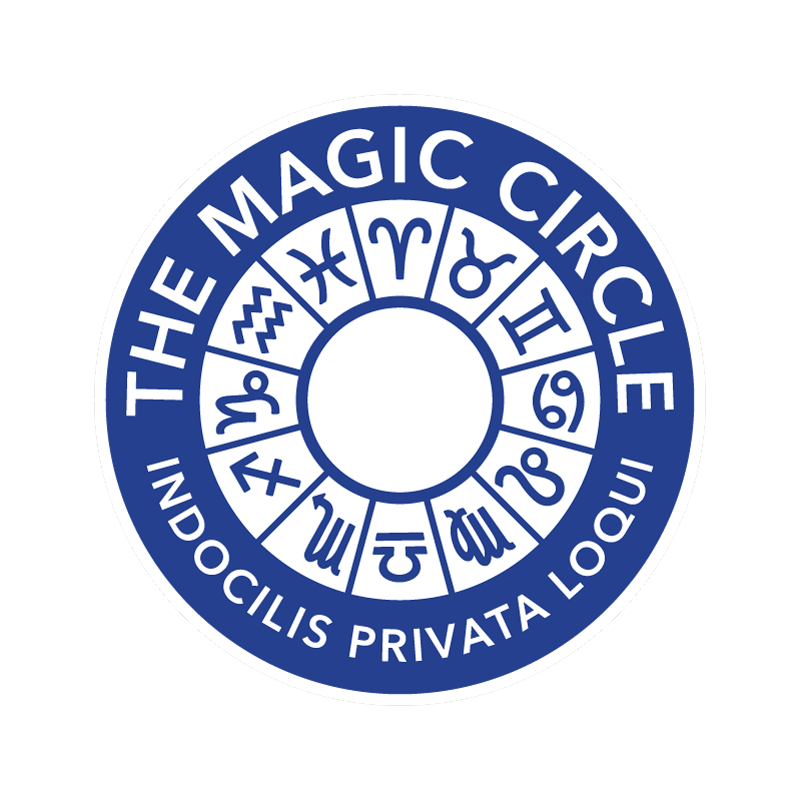It’s A Male Thing
Apart performing magic (Let’s be honest: I love an audience)


my other great passion in life is reading.


I’ve been a book worm all my life. My mum told me that my first teacher said she had never met a child as determined to learn how to read as I was.
I would spend days as a teenager in the local library.
Unless I must keep an appointment, plane or train delays never bother me. It’s the perfect excuse to sit down and lose myself in a book.
I am also a great one for ticking things off on a list. For example, if my wife (Sheila) and I buy a book of walks then my instinct is to see if we can do all of them, ticking them off as we go.


It’s a male thing, she assures me.
The Cult Fiction Challenge
So, you can imagine my joy when a few years ago I managed to find a way to combine both passions.
Browsing in Waterstones one afternoon, I stumbled across The Rough Guide to Cult Fiction.
Each entry has a brief biography of an author who has a cult following; a little bit about what characterises their work and a list of essential and further reading.
I spontaneously decided to buy it and make it my business to read at least one book by every writer in the guide.
The rules were (because, of course, there just have to be rules: it’s a male thing)
1. I would work through the guide in alphabetical order
2. I would read something from the essential reading suggestions
I also decided I would not need to revisit any authors I had read before…which left me with about 125 to get through.
It’s proving an ‘interesting’ journey to say the least.
The Ups and Downs
One of the first books I read was Alphabetical Africa by Walter Abish. It has 52 chapters, going from A to Z and then Z to A. Each chapter is meant to only contain words beginning with the letters of the alphabet up to whatever the chapter heading is.
So, for example, the 5th and 48th chapters (both E) only contain words beginning A, B, C D, E. The first chapter (just two pages, you can see why) begins:
Ages ago, Alex, Allen and Alva arrived at Antibes, and Alva allowing all, allowing anyone, against Alex’s admonition, against Allen’s angry assertion…
and it goes on. It was only in chapter 9 (I) that I realised it was being told in the first person. Up to then the word ‘Author’ was used instead.
Fortunately, not every book has been as challenging as that.
One of the results of the project is that I have read I areas I would usually avoid. For example, I have never had any interest in reading westerns. Zane Grey’s Riders of the Purple Sage was surprisingly enjoyable, especially his loving descriptions of the plains.
I loved SF as teenager but hadn’t read any for years. The guide introduced me to Ursula Le Guin. Here is an who uses SF to explore political and philosophical issues thoughtfully, for instance in The Dispossessed. Jung, Taoism, Anarchy and Capitalism explored…and not a ray gun insight.
Rules: Who Needs Them?
Having rules, especially self-imposed, can seem like an unnecessary imposition. Why should I make myself read a book or genre I don’t enjoy?
Well, yes, there are some books that I find tedious right to the end and can’t wait to put down e.g. Richard Hell’s The Vodoid.


But these have been few and far between so far.
By persevering with a book that left to my own devices I would have dropped, I often end up enjoying it, despite my first impressions e.g. G. Cabrera Infante’s Three Trapped Tigers.
Like writing sonnets or haikus, I suppose, the restrictions confine yet enable.
As I write this, I still have 55 authors to explore.
Then I must decide whether to work my way through the graphic novel section of the guide. It might be time-consuming. However, having waded through the 900 pages of William Gaddis’ The Recognitions, I reckon picture books should be a piece of cake.



You must be logged in to post a comment.